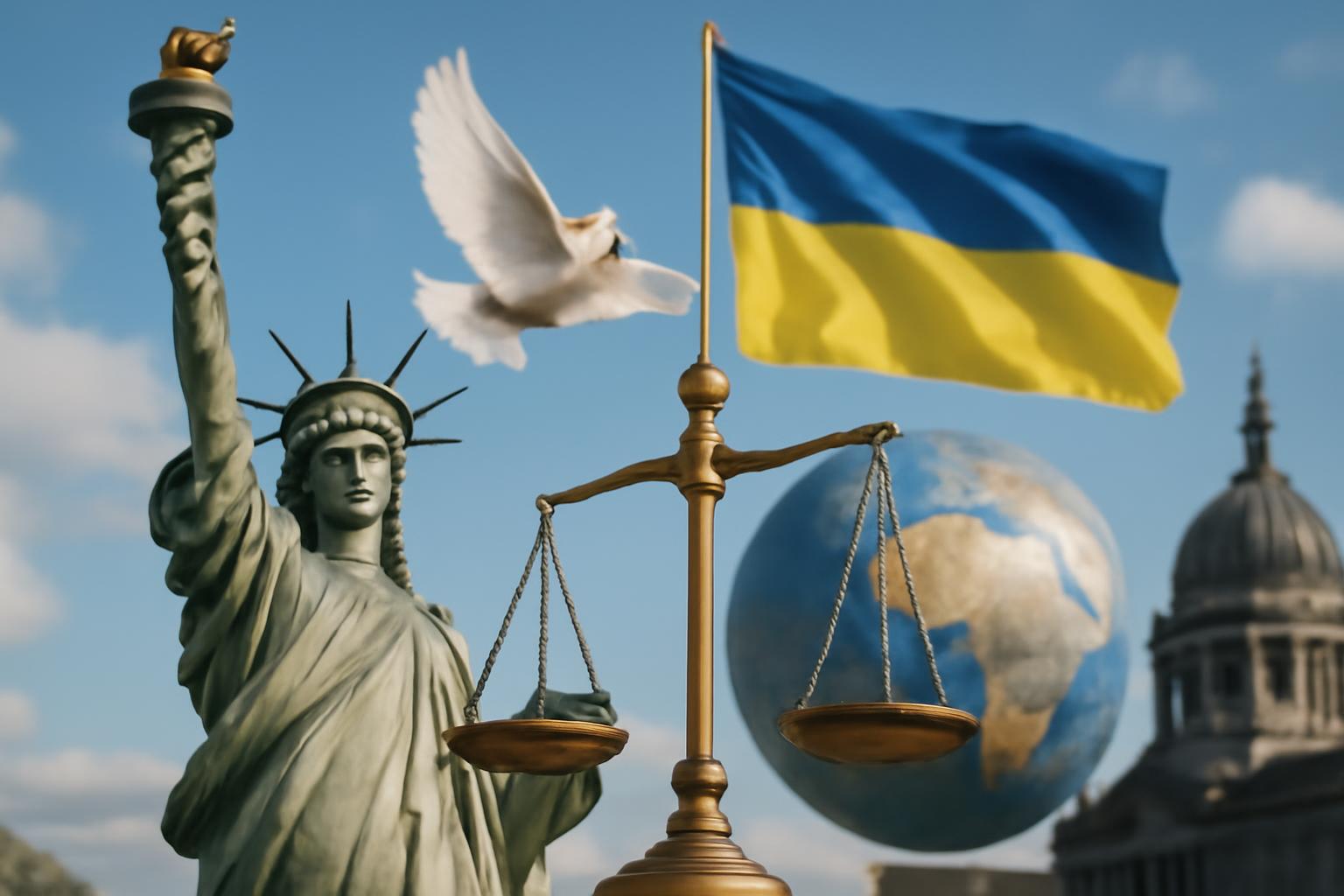Western officials, led by Britain’s foreign secretary and the American vice president, prepared to brief Ukraine in Britain as a high-stakes meeting between two powers looms. A forum bringing together Ukrainian and European security officials was framed as crucial for steering toward a just and lasting peace, with participants reaffirming that pressure on Vladimir Putin should continue until the war ends. At the same time, Ukraine’s president urged maximal coordination with Kyiv’s partners and demanded clear, concrete steps to end the fighting, warning that any decision contrary to Ukraine would be a decision against peace and that Ukrainians will not yield their land. Zelensky was not invited to an Alaska meeting announced by Trump for August 15, while the Kremlin confirmed the plan and invited Trump to visit Russia afterward. Starmer had previously spoken with Zelensky by phone.
What is unfolding here is a theatre of power in which a handful of grand strategists seek to command outcomes by signaling, pressure, and the theatre of summits. They talk of a just peace as if it were a property to be settled by proclamations rather than by the patient, unglamorous work of free institutions and the dispersed knowledge of many peoples. But a peace of coercive terms imposed by a few elites risks becoming a fragile arrangement, built on fear rather than freedom, and liable to fracture whenever the next unforeseen fact disrupts the script. There is a danger that the rhetoric of “barbaric war” and the drumbeat of pressure obscure the deeper truth: lasting peace cannot be manufactured by fiat from the top down, because the complex order of human cooperation cannot be commanded into being by the press of a button or the swagger of a televised consensus.
If there is to be a stable resolution, it must arise from the restoration and respect of liberty—openness, respect for sovereignty, and the ability of peoples to choose their own path within the bounds of universal rights. Peace cannot be secured by coercing one player into submission while others map out the future in closed rooms; it will come only if the actors revert to credible rules, predictable trade, and the protection of property and liberty across borders. Ukraine’s future, after all, cannot be written by distant capitals’ assurances any more than it can be foreclosed by distant ultimatums. The courage of a nation lies not in resisting only with soldiers, but in maintaining the freedom of its people to decide, through their own institutions, what sort of peace they wish to live under. Until that humility—recognizing the limits of centralized control and the dangers of presuming to know the best path for all others—permeates the dialogue, the talk of peace will remain vulnerable to missteps, and the very idea of lasting peace will drift further from the unpredictable yet inexorable logic of human liberty.
